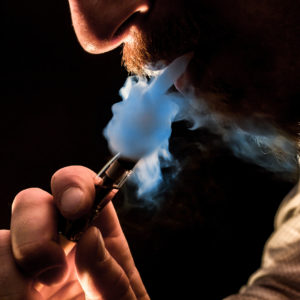President Donald Trump entered office with a promise. He promised to reform the regulatory state that grew under the Obama administration. At first, he did with his noteworthy regulatory reforms and the appointment of market-minded agency heads. However, as is the curse of any politician who loses sight of the people who got him elected, Trump has become more interested in political overtures through misguided policymaking.
The vaping industry received the bittersweet news of FDA commissioner Scott Gottlieb’s resignation with slight reprieve but perturbation. As we have seen through the declaration of the ostensible public health epidemic of youth vaping and the trade war with China enveloping the manufacturing of these products with new taxes and levies, Trump is hardly a proponent for the vaping industry. Moreover, Gottlieb affirmed that assumption tenfold.
Currently, the latest line that has been crossed can be found in Trump’s 2020 budget proposal. Within the historically high $4.75 trillion requested total appropriation, the administration has asked Congress to force the vaping industry to pay $100 million in user fees to beef up the regulatory hammer at FDA’s Center for Tobacco Products. While the actual vaping sector is technically a technology and accessories industry and e-juices could be classified as its own commercial segment, this budget request is indisputable proof that Trump is willing to regulate such products as tobacco products. The user fees are also being expanded to cover less harmful nicotine products like snus and other products up for modified risk tobacco product classification.
To make matters worse, vaping industry advocates and tobacco harm reduction proponents have to additionally face the threats of Gottlieb’s inevitable regulatory enforcement guidelines. Even though Gottlieb announced his resignation due to family issues, the beltway lit up as headlines reported that the domestic policy advisers at the White House gave him the green light. Such a proposal from the FDA will include the long-debated flavor ban for e-juices and plethora of other measures that claim to curtail youth use trends. The implementation of any measures could impact broader access to e-cigarette and vaping products for legal consumers and could carry unintended public health consequences.
Trump’s trade war hasn’t been kind to the vaping industry either. Despite the fact that trade representatives from China and the United States are negotiating a deal to end the trade war, new border taxes have had a considerably negative impact on manufacturers and consumers. The majority of e-cigarettes and vaping products are manufactured in China and, being the world’s largest market for non-medical alternative nicotine products, vaping companies in the U.S. are helping pay the brunt of new tariff levies. In general, the trade war has completely backfired with a recent study by research economists at the Federal Reserve Bank of New York, Princeton University and Columbia University revealing that the trade war has cost U.S. consumers $3 billion a month.
In the end, Trump was never actually interested in tobacco harm reduction and the science behind vaping. I’ve long argued now that even under the current administration, the regulatory regime over vaping in the United States is on an upward expansion that emulates the dynamically aggressive systems found in places like Australia or Hong Kong. Both jurisdictions criminalize vaping as combustible cigarette use remains legal. There is no indication of criminalization yet. However, with the implementation of measures that include higher taxes, flavor bans, certain marketing restrictions, and hysteria campaigns, that expectation is not far off.
The administration has also aligned itself with its political competitors in Congress when it comes to vaping regulation. Sen. Chuck Schumer (D-New York) announced that he intends to push Gottlieb to enforce the proposed flavor ban before he leaves in April. On top of that, the FDA doesn’t seem opposed to such a push.
All I can say is this: Trump and his team have shown no regard for the benefits of e-cigarettes and less harmful alternative nicotine products. By consequence, these actions made in the name of a president who claims to be “pro-business” are purely misplaced.
To conclude, consider these points. E-cigarettes have been proven to be as effective, even more than medicinal nicotine, in helping legacy smokers quit combustibles. Public Health England has found that e-cigarettes are 95 percent safer than combustible cigarettes. Regulations like flavor bans and retail restrictions directly harm public health and ANP access for legal consumers seeking safer products. Lastly, Trump’s federal government continues to operate under the assumption that e-cigarettes are tobacco products. They are alternatives to smoking tobacco, but there is virtually no tobacco leaves nor rolling of paper involved. Outdated laws and regulatory approaches will threaten an industry that has saved lives.


